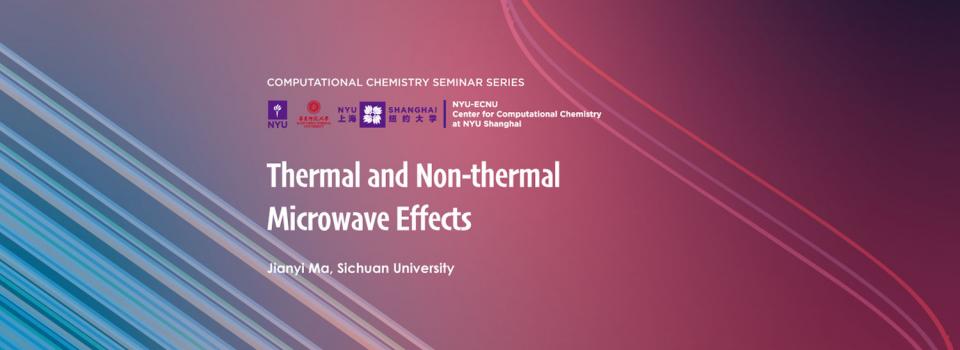
Abstract:
Microwave irradiation has been successfully applied in organic chemistry. Spectacular accelerations, higher yields under milder reaction conditions and higher product purities have all been reported. A number of authors have described success in reactions that do not occur by conventional heating and even modifications of selectivity. The effect of microwave irradiation in chemical reactions is a combination of thermal effects, arising from the heating rate, superheating or ‘‘hot spots’’ and the selective absorption of radiation by polar substances. Such phenomena are not usually accessible by classical heating and the existence of non-thermal effects of highly polarizing radiation—the “specific microwave effect”—is still a controversial topic. We used Master equation method, a successful model to describe the conventional heating reaction, to capture the "microwave effect". The work equation of "microwave effect" included master equation presents the direct heating, indirect heating and non-thermal effect about the microwave field. The modified master equation provides a clear physics picture to the non-thermal microwave effect: the absorption and the emission of the microwave which is dominated by the transition dipole moment between two corresponding states and the intensity of the microwave field provides a new path to change the reaction rate constants. Three important conclusions can be obtained: 1) A reasonable definition of the non-thermal microwave effect is given in the work equation of "microwave effect" included master equation 2) Non-thermal microwave effect possibly exist theoretically. 3) The reaction rate constants perhaps be changed obviously by the microwave field for the non-RRKM and the mode-specified reactions.
Biography:
Jianyi Ma received his Ph.D. from Sichuan University, China, in 2009 with Prof. Xiangyuan Li. He was a postdoctoral fellow with Prof. Hua Guo at the University of New Mexico. In 2012, he joined the Institute of Atomic and Molecular Physics, Sichuan University, China, and is now a Professor of Physics. His research interests include reaction dynamics, microwave chemistry reaction, and combustion simulations.
Seminar Series by the NYU-ECNU Center for Computational Chemistry at NYU Shanghai


